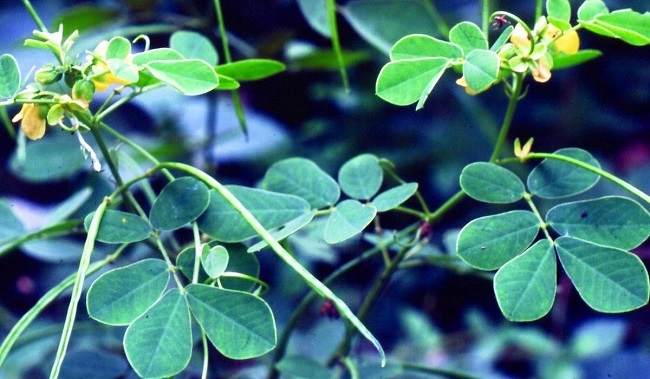This piece has nothing to do with the epic World War II movie, Tora! Tora! Tora! The word means ‘attack’ in Japanese. This sounds like it, yes, although you’d certainly reach out for a tora leaves delicacy and ‘attack’ your plate for a sumptuous fill.
When one travels through the humid coastal regions of the country, during monsoon, one cannot miss but witness the lush green tora leaves adorning the landscape like a natural jewel. The leaves are popularly known as sickle senna, or coffee pod — which also goes by the botanical name, Cassia tora, or Chakramarda in Sanskrit, Tagate soppu, or Chagate soppu, in Kannada, Taikile in Konkani, Tajank in Tulu, Chakavad in Hindi, Takla in Marathi, Tantepu chettu in Telugu, Tagharai in Tamil, Chavuka in Bangla, and Thakara in Malayalam.
Flavoursome Vegetable
A flavoursome monsoon vegetable, tora leaves find their way to most local kitchens to unleash various delicacies. Their medicinal benefits are an added advantage, coupled with the delicious delight they provide.
Ayurvedic texts, like Charaka Samhita, consider this plant as a leafy vegetable useful in worm infestation, skin disease, ‘pacifier’ of kapha and vata dosha, good for the heart, helpful in breathlessness and other respiratory illnesses, and augmenting fat metabolism and enhancing skin health.
Chrysophenol, a useful antiviral, is the notable chemical component in tora plants. The seeds especially are processed into oil called Chakramarda taila, which is beneficial in skin conditions — viz., pruritus, eczema, and psoriasis, among others. Tora is also called the ‘ringworm plant’ owing to its efficiency in treating the infestation [anthelmintic]; it is, therefore, called chakramarda in Sanskrit.
Tora leaves are rich in essential nutrients, viz., iron, calcium, copper, manganese and zinc.
Tora leaves hold good value not just as a culinary vegetable, but also as a nutraceutical.
Tora Smorgasbord
Tora leaves are cooked and served as deep fried fritters, chutney, dosa, pathrode, Tambuli, stir-fries, to name a few. Tender shoots of tora are actually plucked before the flowers bloom and used as food. Maturity adds to their bitterness.
Deep fried fritter is the batter made of ground [soaked] rice and tur dal, red chillies, tamarind, semolina, salt with chopped onions and tora leaves and deep fried in oil, to be relished in the rains.
Pathrode is steamed rice dumpling. Soaked rice, chillies, tamarind, coriander seeds, cumin and salt are ground to a thick batter, and added with chopped tora leaves folded in banana leaves and steamed. It is served hot with a little butter, or ghee, or mashed and seasoned with the addition of coconut as a upma-like recipe. Pathrode-like batter can also be poured to make a small dosa and relished hot, or as accompaniment to rice.
Chutney is made by roasting chopped tora leaves, cumin, pepper, salt, a little tamarind, grated coconut ground coarsely with little water and seasoned to serve with hot rice. The same recipe, devoid of tamarind, with the addition of buttermilk makes Tambuli.
Tajank sukka is a stir-fry made of chopped tora leaves with onions and cooked jackfruit seeds.
Tora coffee. Tora seeds can be roasted and brewed into a coffee-like beverage.
Tora leaves are seasonal. They are relished in most parts of the sub-continent for their taste, flavour, anthelmintic property and as a delicacy — to ward away the monsoon blues.

